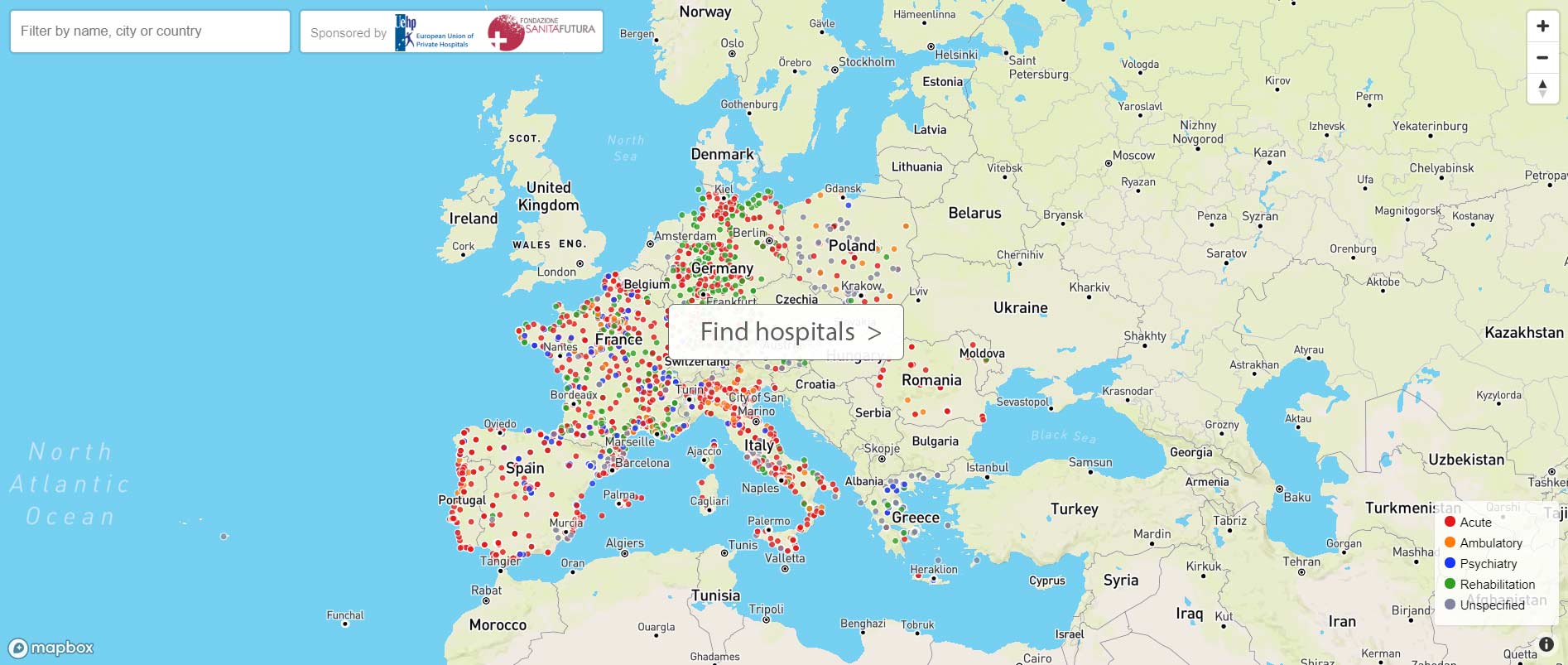SEPTEMBER 2019. The exchange program for employees in hospitals and healthcare facilities HOPE is an activity offered by the European Hospital and Healthcare Federation. Every year, a four-week training period in a guest hospital allows the participants to get to know another healthcare system, either in the EU, or in another European state. From May 6 to June 4 2019, Gabriele Koch, the quality management representative at the Klinikum Bad Gleichenberg, took part in the exchange program.
Gabriele Koch traveled to Denmark where she was able to act as an observer in different healthcare facilities in Middle and North Jutland as well as getting acquainted with a project planning a new hospital in Zealand.
The main focus of the 2019 exchange program was “Evidence-informed decision-making in healthcare management”. The closing event held from June 2nd to 4th was dedicated to the evaluation of all European participants in Ljubljana.
“In Denmark, we focused intensively on the topic of “Evidence-informed decision-making in healthcare management.” Regarding solution finding based on existing data, Denmark can rely on a very extensive compilation of medical records. All five Danish regions manage medical and patient data through their own business intelligence center. Every information gathered from these reports enable the healthcare system to trace all processes of change and improvement as well as to evaluate results.
It was very impressive to see how this data was used towards quality management in the facilities we visited. Each of these improvement projects begins with defining key performance indicators which show, if and how much the quality level in- or decreases during the project”, explains Gabriele Koch.

“Here is an example: The range of ratios made it possible to compare the shortening of a hospital stay (e.g. after giving birth) with the number of complications after the release of a patient. It is possible for a mother who has given birth for the second time to leave the clinic 2 to 4 hours after delivering her child, given there were no complications. Compared to Austria, Denmark manages to keep their lay days very low; but shortening the length of patient’s stay while maintaining a certain level of quality can only be accomplished with the help of a strong medical system outside of the hospital.
The certified nurses of the DGKP (registered nurses for anesthesia and intensive care medicine) mostly take care of patients after a hospital stay. Additionally to their training, the DGKP has extra qualification and is qualified to tend to patients leaving health facilities as well as being a first contact in case of medical problems. Since patients are already informed during there stay in the hospital which nurse will be responsible for them when they leave the hospital, and what they need to pay attention to, the ones I spoke to gave me the feeling of being calm about being released “early”. Nurses have considerable responsibilities, which is very satisfactory. Knowing that a doctor will immediately help them if complications or questions arise, strengthens the sense of security.
Danish law also allows nurses with additional qualification to perform medical acts only permitted to doctors in Austria, and these “new tasks” of the nurses enable a strong interdisciplinary cooperation with the doctors. For example, a nurse will perform an endoscopy and call a doctor in case of a unclear result. In the beginning I was very surprised about that but I understood, after the exchange program, that these nurses were qualified to do so after their particular training.
From my point of view, this intensified interdisciplinary cooperation between nurses and doctors has only a positive effect on the quality of the results, the satisfaction of the employees, the management of resources, and on the expense in a healthcare system as well. The shortage of doctors, which is ever growing in Europe, could, from my point of view, be cushioned by this interdisciplinary way of working.”
Gabriele Koch, quality and risk manager


